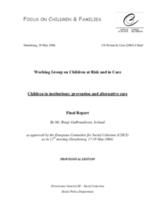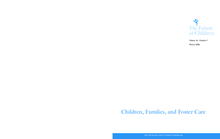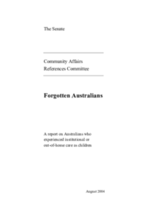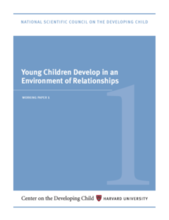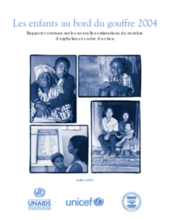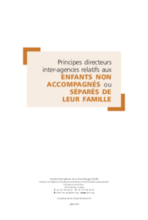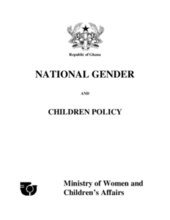Displaying 13881 - 13890 of 14347
A comparative analysis of protection and care systems across Europe, focusing on the use of institutions, alternative forms of care placements, family support services, and the role of social workers in the process of child placement.
In assessing the practice of foster care in the US and its current limitations, this series of articles advocates for the implementation of health assessments for all children in care, support to preserve permanency and assist birth families, comprehensive supports for foster families, specialized services for children in need, increased cultural competency in social work practice, coordinated services across sectors for families in need and comprehensive well being assessments for children in care.
Review of information relevant to the commercial sexual exploitation of children and young people in the UK. Focus on abuse through prostitution; abuse through pornography; and child trafficking.
Upwards of, and possibly more than 500 000 Australians experienced care in an orphanage, Home or other form of out-of-home care during the last century. This report shares their stories.
This working paper from the National Scientific Council on the Developing Child explains how adult-child relationships shape child development, and identifies ways to strengthen policies that affect those relationships in the early childhood years.
Cette publication conjointe de l’UNICEF et de l’Union Interparlementaire (UIP) est un véritable appel à l’action. Elle offre des exemples d’interventions de parlementaires en faveur de la protection des enfants et examine 10 questions spécifiques de protection.
Le VIH/SIDA a privé de parents ou rendu vulnérables des millions d’enfants. La région la plus durement touchée est l’Afrique subsaharienne, où l’on estime à 12,3 milions le nombre d’enfants étant orphelins à cause du SIDA. La disparition des parents n’est pas la seule répercussion qu’a le VIH/SIDA sur les enfants. Parmi les autres enfants rendus vulnérables par le VIH/SIDA figurent ceux qui ont un parent malade, qui vivent dans des ménages pauvres prenant en charge des orphelins, qui sont victimes de discrimination du fait de la séropositivité d’un membre de leur famille ou qui sont eux-mêmes séropositifs. Par conséquent, les programmes ne peuvent être exclusivement destinés aux enfants orphelins à cause du SIDA mais doivent s’adresser aux communautés où le VIH/SIDA exacerbe la vulnérabilité des enfants et des adolescents.
Les principes directeurs inter-agences relatifs aux enfants non accompagnés ou séparés de leur famille sont destinés à garantir que toutes les mesures et décisions prises au sujet des enfants séparés de leur famille sont ancrées dans un cadre de protection et respectent les principes de l’unité de la famille et de l’intérêt supérieur de l’enfant.
Les enfants en famille d’accueil sont une population à haut risque de troubles d’attachement. Dans une tentative de prévention de tels troubles, une Clinique d’Attachement a été développée à Montréal (Canada) dans le but d’offrir une consultation aux intervenants en Protection de l’Enfant qui œuvrent avec les enfants 0-6 ans en famille d’accueil et leurs familles.
This National Gender and Children Policy developed by the Ghana Ministry of Women and Children's Affairs aims to mainstream gender concerns in the national development process.

